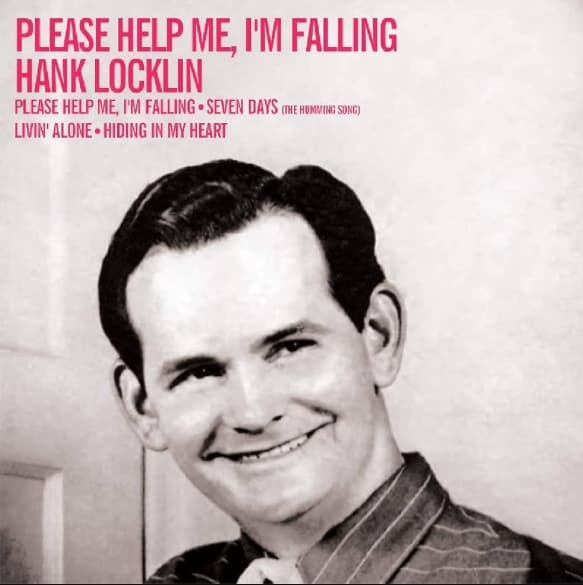
A desperate plea to a partner, confessing a heart’s dangerous slide towards forbidden love.
There are songs that simply exist, and then there are songs that become a part of the cultural fabric, etched into the collective memory of a generation. Hank Locklin’s 1960 masterpiece, “Please Help Me, I’m Falling,” is unequivocally the latter. It’s a song that speaks to the deepest, most difficult human emotions—the pull of temptation, the guilt of a promise broken, and the heartbreaking vulnerability of admitting you are losing control. When it was released, it didn’t just climb the charts; it soared, becoming a phenomenon that crossed genres and reached a staggering number of listeners.
Its success was immediate and undeniable. The single shot to the top, spending an incredible 14 weeks at number one on the Billboard country singles chart, a testament to its powerful and relatable theme. But its reach extended far beyond the honky-tonks and rural radio stations. It was a rare crossover success, peaking at number eight on the Billboard Hot 100, introducing Hank Locklin and the very essence of country music’s soul to a wider pop audience. The song’s popularity was not confined to America; it also found significant success in the United Kingdom, where it climbed to number nine on their pop chart, demonstrating the universal appeal of its poignant message.
The true genius of “Please Help Me, I’m Falling” lies in its daring and devastatingly honest lyrics. Written by the powerhouse duo of Don Robertson and Hal Blair, the song tells a story we’ve all, in some form or another, encountered or witnessed. A man finds himself on the precipice of an affair. His current relationship, he sings, is a place where “arms have grown cold,” yet he’s bound by the solemn “I promised forever to have and to hold.” He isn’t asking for help from a higher power or a friend, but from the very person who is tempting him. “Turn away from me darling, I’m begging you to,” he pleads, laying bare the conflict between his heart and his conscience. It is an act of breathtaking vulnerability—a man so weakened by temptation that he must ask the source of his struggle to save him from himself. The song’s title isn’t a plea for love, but for a lifeline to avoid a moral sin.
Beyond its lyrical depth, “Please Help Me, I’m Falling” is a quintessential example of the Nashville Sound. Under the masterful production of Chet Atkins, the raw, unadorned twang of traditional honky-tonk was softened and polished. The song features a clean, simple production, highlighted by a beautiful, understated piano melody played by the legendary Floyd Cramer, which gives the track a sense of both elegance and melancholy. This smooth, orchestrated style, often featuring lush string arrangements and background choruses, was a deliberate move to make country music more palatable to a broader pop audience. It was a controversial shift at the time, but for this song, it worked perfectly, allowing Locklin’s clear, pure tenor to soar and carry the weight of the lyrics without distraction.
For many of us who remember that time, the song is a bittersweet echo of an era when music could be both simple and profound. It wasn’t about extravagant production or flashy performances; it was about the raw, honest human experience set to a melody. It was a song you could hear on the radio and feel in your bones, a stark and touching reminder of the internal battles we all face. It’s a moment of musical history that speaks to the heart, a timeless confession of a soul on the brink, still resonating with its emotional truth more than six decades later.